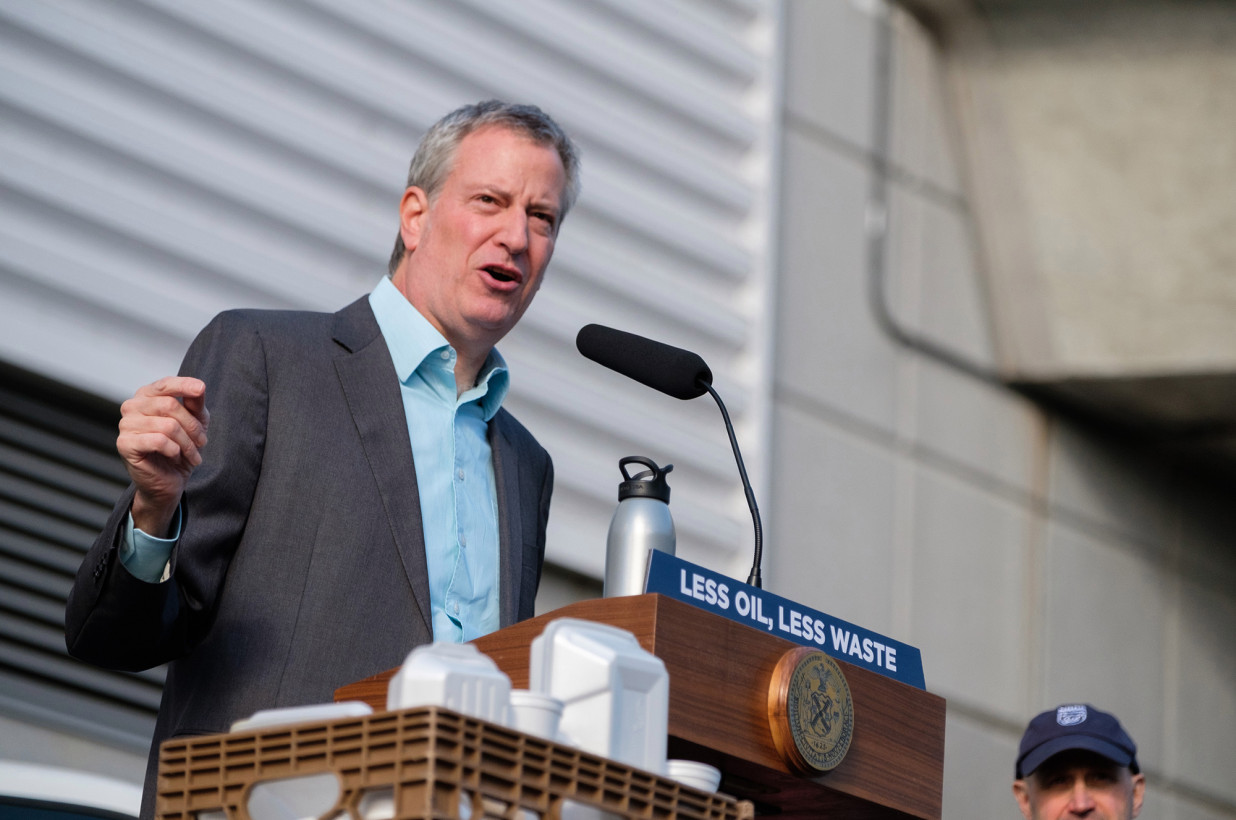
- Sustainable Planet -
- 3mins -
- 323 views
New York City bans Styrofoam
As of January 1, 2019 certain foam products will be banned from possession, sale, or use in NYC. This includes foam takeout containers, cups, packing peanuts, plates, bowls and trays.
NYC’s Styrofoam ban came into effect on January 1
Beginning January 1, 2019, New York City’s long-awaited foam ban finally came into effect across the five boroughs. That means single-service Styrofoam items like takeout containers, cups, packing peanuts, plates, bowls and trays are officially banned from possession, sale or use in the city.
New York’s foam ban won’t be enforced until July
As of January 1, 2019, New York City stores, food service establishments, and mobile food commissaries may no longer offer, sell or possess single-use foam (styrofoam/polystyrene) food containers such as foam takeout clamshells, cups, plates, bowls and trays.
Additionally, manufacturers and stores may no longer sell or offer for sale loose fill foam packaging (“packing peanuts”) in the city.
Exceptions
- Foam containers used for prepackaged food that have been filled and sealed prior to receipt by the food service establishment, mobile food commissary, or store.
- Foam containers used to store raw meat, pork, fish, seafood or poultry sold from a butcher case or similar retail appliance.
- Foam blocks used as protective packaging in shipping are not covered under this law.
Enforcement
This ban is effective as of January 1, 2019. Affected businesses, agencies, and nonprofits will have a six month warning period lasting through June 30, 2019. Following the warning period, Notices of Violation will be issued and civil action may be taken.
Beginning July 1, 2019, establishments found in violation of the foam ban will receive fines for each Notice of Violation issued within a 12-month period in the following amounts:
- $250 for the first offence
- $500 for the second offence
- $1,000 for the third and subsequent offences
Affected establishments should be prepared to receive inspectors, at least annually as part of routine inspections or 311 investigations, from one or more of the following agencies:
- NYC Department of Sanitation
- NYC Department of Health and Mental Hygiene
- NYC Department of Consumer Affairs
Alternatives
There are many alternative packaging options available including aluminum, rigid plastics, uncoated paper, glass, and compostable items. New York City’s Department of Sanitation is encouraging everyone to explore and use reusable, returnable and/or refillable containers.
Source: NYC.gov

About EPS (expanded polystyrene) or styrofoam
About EPS:
- Expanded polystyrene is a plastic resin manufactured into consumer products such as “foam” cups, containers, trays, plates, clamshell cases and egg cartons.
- Department of Sanitation New York (DSNY) collected approximately 28,500 tons of expanded polystyrene in Fiscal Year 2014 and estimates that approximately 90 percent of that is from single-use food service products like cups, trays and containers.
- EPS is a major source of neighborhood litter and hazardous to marine life. EPS foam is a lightweight material that can clog storm drains and can also end up on beaches and in New York Harbor. EPS containers can break down into smaller pieces, which marine animals may mistake for food. The environmental assessment prepared for the bill found that expanded polystyrene particles can wind up in the harbor, and in the floating gyre of non-biodegradable plastic debris that has been found in the Atlantic Ocean – creating a hazard for marine life such as sea turtles and fish.
- EPS is a contaminant of the city’s organics program. The presence of EPS foam in NYC’s waste stream has a detrimental effect on the City’s organic collection program. During the collection process, foam can break down into small pieces that get mixed in with and contaminate organic material, rendering it unmarketable for anaerobic digestion or composting.
- EPS is already banned in cities across the country, including Washington, DC, Minneapolis, San Francisco, Oakland, Portland, Albany, and Seattle. In total, more than seventy cities have banned foam and businesses large and small have shifted to alternative products that are biodegradable or otherwise recyclable.

